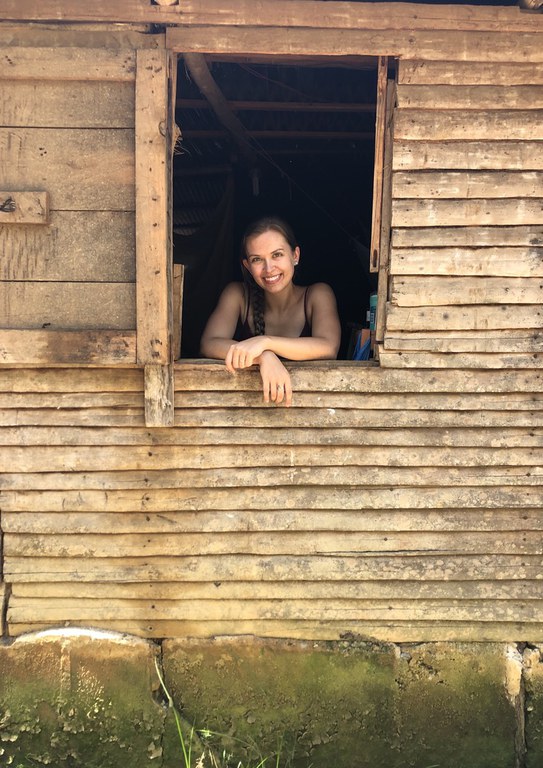Posted: September 3, 2019
Effie Smith recently spent two and a half months in a former sugar-cane laborer community in the Dominican Republic conducting in-depth interviews to uncover the sources of income of contemporary batey residents.
Penn State graduate student Effie Smith has spent the past four years traveling to the Dominican Republic for research. The small nation that shares an island with neighboring Haiti used to be one of the largest sugar producers and exporters in the world. To maintain the supply of that in-demand product, sugar cane plantations have historically relied on foreign laborers, mostly from Haiti. Since the crash of sugar prices in the 1980s and the growth of the Brazilian sugar cane and American beet sugar industries, the number of functioning sugar plantations in the Dominican Republic has plummeted.
Ms. Smith's research explores what happens to the laborers left behind and their families in the aftermath of such large-scale industry shutdowns. Ms. Smith recently spent two and a half months in a former sugar-cane laborer community (called a “batey") in the Dominican Republic this past summer of 2019 conducting in-depth interviews to uncover the sources of income of contemporary batey residents.
Batey La Luisa Prieta is a small community filled mostly with the families of former sugar cane cutters. The vast majority of the current population is ethnically Haitian or of mixed Dominican-Haitian descent. In the Dominican Republic, issues of discrimination based on race and ethnicity have relegated darker-skinned immigrants from Haiti and their descendants to lower-paying, seasonal jobs such as cane cutting and, increasingly in the modern era, construction. Additionally, with the collapse of the sugar industry, there are very few if any job opportunities in these rural areas.
So why do people stay? And how do they make a living when facing societal discrimination based on race and ethnicity, issues of documentation, and geographical isolation?
The situation for many families is precarious with many working multiple jobs within and outside of the batey to make ends meet. For more recent immigrants from Haiti job opportunities are even more limited because of language barriers and lack of formal documents.
After months of investigation, Ms. Smith has returned to the Pennsylvania State University to complete the final year of her Master's program as well as complete her thesis work. She hopes to use the information she gathered during her fieldwork to not only complete her Master's thesis, but also to continue work in development in the Dominican Republic in the future. For any further questions about Ms. Smith's work or interest in reading her thesis upon completion, please reach out at: ees238@psu.edu
Acknowledgements
Effie Smith's thesis fieldwork for her thesis titled “Livelihoods in the Balance: Haitians and Haitian-Dominicans and precarious work in rural Dominican Republic" received funding from:
The Pennsylvania State University's International Agriculture and Development Program
The Rural Sociological Society
Ag Sciences Global
Address
106 Agricultural Administration BuildingUniversity Park, PA 16802
- Email globalag@psu.edu
- Office 814-863-0249
- Fax 814-865-3055
Ag Sciences Global
Address
106 Agricultural Administration BuildingUniversity Park, PA 16802
- Email globalag@psu.edu
- Office 814-863-0249
- Fax 814-865-3055


